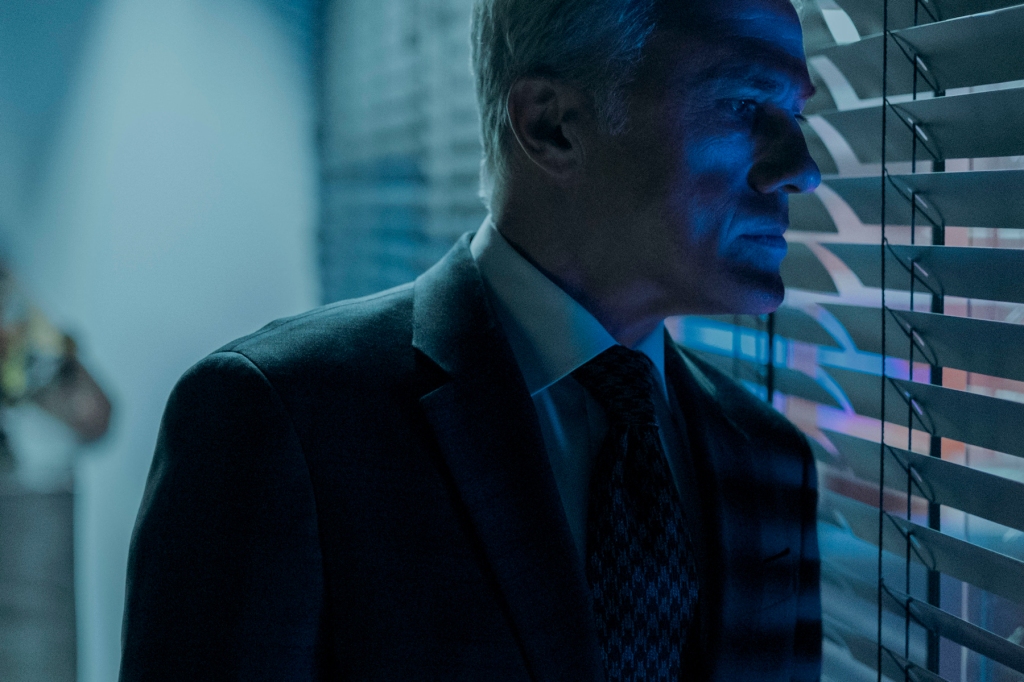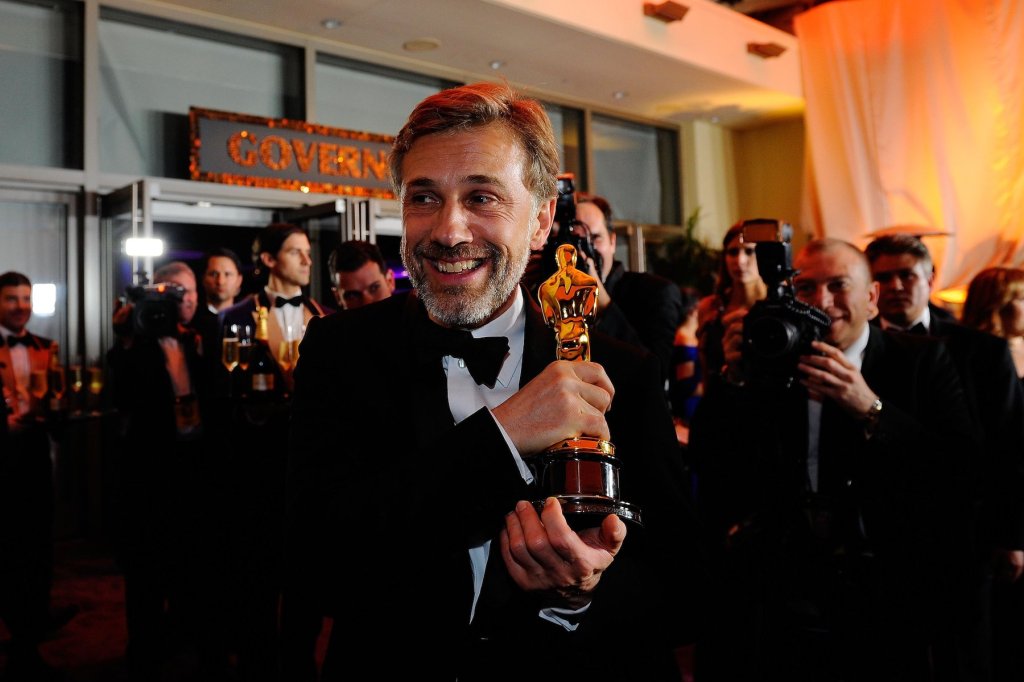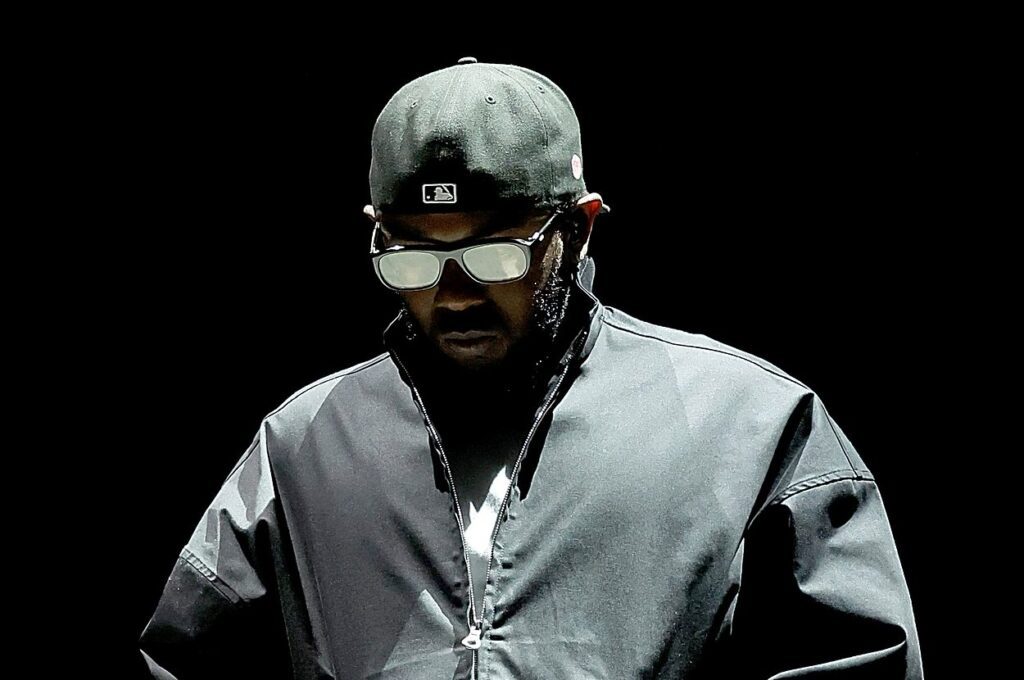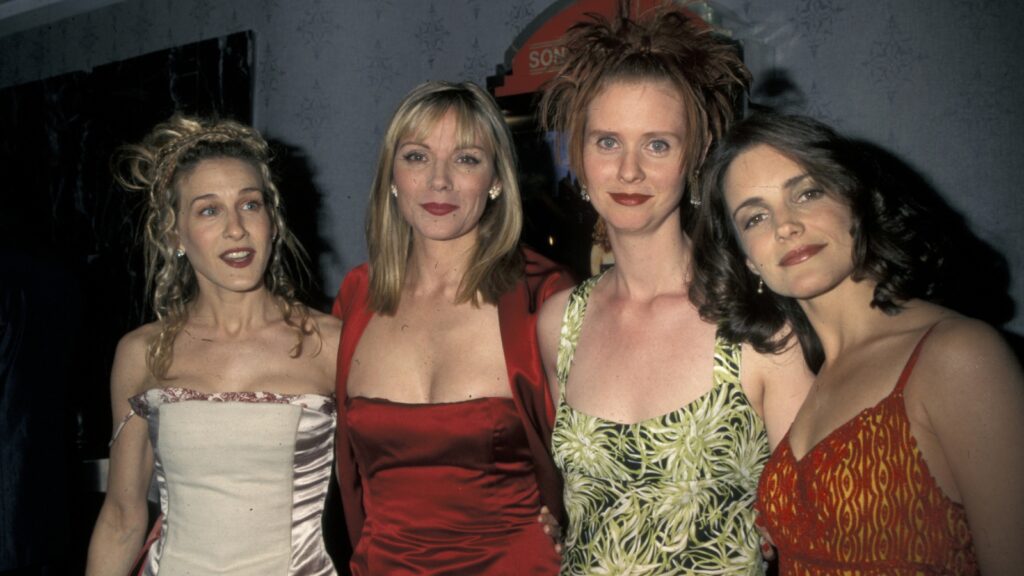
Christoph Waltz Would Sooner Die Than Make a TikTok
Christoph Waltz is warm, inviting, and disarmingly kind — as if he knows it can take a moment for people to adjust to his real-life persona compared to the mostly horrifying men he’s embodied onscreen. In truth, since his portrayal of SS Colonel Hans Landa in 2009’s Inglourious Basterds, Waltz has captivated through peculiar means. Whether rooting for his character’s demise or investing in their glory, there is no passive way to take in the two-time Oscar winner’s work. And so, whether he is orchestrating the death of innocent civilians in the aforementioned Basterds, sending James Bond on a silly yet stylish mission in No Time To Die, or escorting a former slave on a revenge journey in Django Unchained, you go on the ride because Waltz is in the driver’s seat.
The same can be said of Prime Video’s newest dark comedy thriller, The Consultant — a series set against the backdrop of the tech and corporate worlds in which Waltz steps into the tailored suit of Regus Patoff, a man for whom the means, however sinister and boundless, always justify the end. The show puts the relationship between boss and employee under an eerie microscope while examining how far we are willing to go to come out on top, no matter the cost. Power, the kind that corrupts absolutely, is the silent villain of the series; however, Waltz’s Patoff is the conduit. And much like Waltz’s approach to his characters — “free of judgment and simply human” — The Consultant leaves audiences wondering if it all simply comes out in the wash.
Whatever the case, what is certain is that we’ve all become accustomed to trusting the 66-year-old actor to lead us right to the edge of our moral compass and then invite us to walk right past it. Rolling Stone caught up with Waltz to discuss his process, how he makes wrong feel so right, and whether we’ll ever see him on TikTok.
You’re an Oscar winner, you’ve been in an innumerable number of projects, but how do you describe yourself as an actor and an artist at this point in your career?
A working actor.
Still just a working actor?
I’m describing myself as a working actor because that is an extremely privileged circumstance. To be a “working” actor, so many people don’t get to experience that. I am proud to say that about myself.
Christoph Waltz as Regus Patloff in ‘The Consultant.’
Andrew Casey/Prime Video
You seem to effortlessly toe the line between deeply dark drama and comedy — it seems like you prefer projects that lend themselves to that. What draws you to the Regus Patoffs of the world?
You said a key word there: effortlessly. The writing of that — it’s all in the writing as we know, I’m not coming up with anything — is effortless. That’s the beauty of it. It’s the discernible effort that burdens stories. If I find that the emphasis is weighing the story down, it loses me right away because I then perceive the people who wrote it. When there’s an ease, it makes it possible for me, as the audience, to participate. I want to be in the story. I don’t want to be impressed by people’s effort or disappointed by their lack of it. The achievement of this complexity in a simplistic way — that’s what I find most intriguing. That’s what draws me in.
In the same vein, your characters seem to have a rhythm or heartbeat riddled with oddities and quirks. Is that a reflection of what you find interesting about people or just what you happen to lend yourself to as an actor?
Definitely. I love the fact that you call out the rhythm because syncopation is always more interesting than straight beats. If you encounter a person who, in his rhythm, is syncopated you’re immediately on to something that’s worth inquiring more about. Whereas, if everything is happening on the one and then the three — I’d rather it march past me. I am already bored of it. I can live without it.
In The Consultant, with Patoff, what was the one oddity you enjoyed leaning into the most?
I don’t perceive it as odd but maybe the matching he does. It’s not because of what I do though but because of what the others [in the cast] do. It’s the thing I enjoyed most. In this project it’s sort of “hare on the run”: you can run in hooks and speed up and slow down but the dog needs to follow. That way the dog will never catch the rabbit. The dog runs fast but he only runs straight so he can’t adjust to twists and turns. That’s what’s at play here. That, perhaps, was my favorite thing.
One would argue that you’re in a sweet spot of being able to do just about any kind of project you want but in producing, you’ve been very selective. What made last year’s Dead for a Dollar and now The Consultant the projects for you to play the role of EP?
Between you and me, the role of the executive producer is on the nominal level. It actually really only means that it’s considered worthwhile to listen to me. That’s about it. It doesn’t mean they have to do anything that I say, it’s just a promise to be nice enough to listen.
Control, manipulation, blackmail, absolute power/corruption — with the movements we’ve seen against powerful men who’ve abused their positions, this show comes at a delicate time. Was that part of the appeal?
Not so much, to be honest. What I found more appealing was to push people out of their comfort zone is, very often, to their benefit. They learn to see themselves or what they do in a different context from a different angle. This is how cognitive behavioral therapy works: you’re guided to change your perspective to, more or less, avoid self-fulfilling prophecies. That aspect of it, the psychological and psychoanalytic part, is what I found really interesting.
You play a lot of “villains,” and our country sort of has a love affair with rooting for the bad guy. How do you approach a character who seems to have few redeemable qualities?
I don’t judge. I don’t evaluate. I don’t attach moral attributes to the characters. I’m not there to voice my opinion. I’m not called upon to pass moral judgments on anything. The writer can. The actor cannot.

Christoph Waltz, winner of the Best Supporting Actor Oscar for ‘Inglourious Basterds,’ attends the 82nd Annual Academy Awards Governor’s Ball at Kodak Theatre on March 7, 2010, in Hollywood, California.
Kevork Djansezian/Getty
I want to talk about details. In each of your performances, there is always a tiny detail that sticks out. That’s surely purposeful.
Oh, I pay crucial attention to the small details. What we do is an accumulation of details. If we disregard them, the whole does not become clear. [I accomplish] as many as I can responsibly fit into a scene and a character. It has to facilitate the flow. There can be a good chance that you’re putting in too much to where it becomes distracting. When it becomes unnecessary, that’s when it’s time to make your choices.
Is that something you and Patoff have in common? He seems to use little details about people to ultimately get what he wants.
Maybe not that but there are other things that make a lot of sense to me about how he looks past the surface. Actually looking at others. He sees where they may benefit, even though the remedy doesn’t feel beneficial to them at all. That’s what good teachers really do. They say, “It may not feel so good… you may actually face a crisis or an identity problem, but that’s exactly what gets you out of your rut.” That’s the sweet spot.
The Consultant takes place amongst the backdrop of the gaming world. Have you found any gaming or gamers that interest you since working on this?
No. [Laughs]
None? Zero?
I’m not interested in gaming at all!
Never even indulged on your phone?
[Laughs] That’s where the character and I are one hundred percent congruent. When playing with these things, it’s like, “People waste their time with that? And they PAY MONEY FOR IT?!”
So, we won’t be seeing you on TikTok or Youtube anytime soon.
No, never. Vehemently no. [Laughs]



